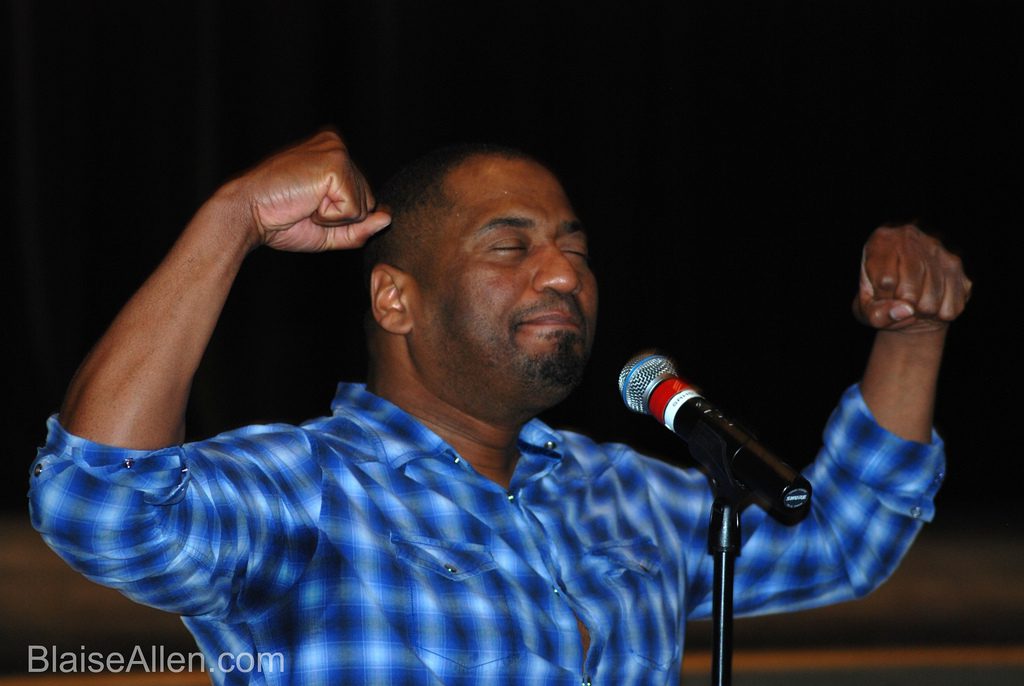
The Festival was pleased to welcome David Blair who performed at the Coffee House at the 7th Annual Festival in 2011. His performance was masterful and mesmerizing and his poems at home anywhere … stage or page. He died unexpectedly in July 2011.
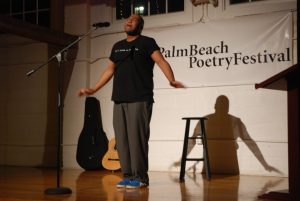
Poet information

The Festival was pleased to welcome David Blair who performed at the Coffee House at the 7th Annual Festival in 2011. His performance was masterful and mesmerizing and his poems at home anywhere … stage or page. He died unexpectedly in July 2011.

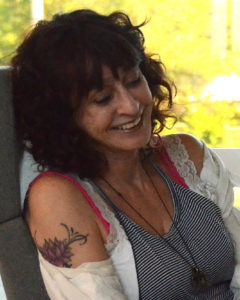 Kim Addonizio is the author of a dozen books of poetry and prose. Her most recent poetry collection is Now We’re Getting Somewhere (W.W. Norton). Her memoir-in-essays, Bukowski in a Sundress, was published by Penguin. She has received NEA and Guggenheim Fellowships, Pushcart Prizes in both poetry and the essay, and her poetry has been widely translated and anthologized. Her work has appeared in the New Yorker, the New York Times, Poetry, The Sun, the Times Literary Supplement (UK), and numerous literary journals. Tell Me was a National Book Award Finalist in poetry. She performs and teaches internationally at colleges, universities, festivals and conferences, and currently lives in Oakland, CA, where she teaches private workshops. Visit her at https://www.kimaddonizio.com
Kim Addonizio is the author of a dozen books of poetry and prose. Her most recent poetry collection is Now We’re Getting Somewhere (W.W. Norton). Her memoir-in-essays, Bukowski in a Sundress, was published by Penguin. She has received NEA and Guggenheim Fellowships, Pushcart Prizes in both poetry and the essay, and her poetry has been widely translated and anthologized. Her work has appeared in the New Yorker, the New York Times, Poetry, The Sun, the Times Literary Supplement (UK), and numerous literary journals. Tell Me was a National Book Award Finalist in poetry. She performs and teaches internationally at colleges, universities, festivals and conferences, and currently lives in Oakland, CA, where she teaches private workshops. Visit her at https://www.kimaddonizio.com
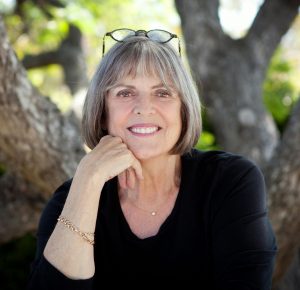
Laure-Anne Bosselaar is the author of The Hour Between Dog and Wolf, Small Gods of Grief, winner of the Isabella Gardner Prize for Poetry for 2001, and of A New Hunger, an ALA Notable Book. Four Way Books published her latest collection: These Many Rooms. Her poetry was featured on Poetry Daily, The Academy of American Poets’ website, and in reviews such as Orion, Georgia Review, Five Points, Ploughshares and Harvard Review. Garrison Keillor read four of her poems on NPR’s A Writer’s Almanac. A Pushcart Prize recipient, she was also awarded the James Dickey Poetry Prize for 2020. She is the editor of four anthologies and taught at Emerson College, Sarah Lawrence College, UCSB, and is a member of the founding faculty at the Solstice Low Residency MFA in Creative Writing Program.
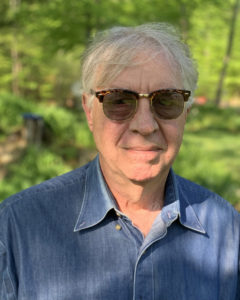 Chard deNiord is the author of seven books of poetry, In My Unknowing (University of Pittsburgh Press 2020), Interstate (University of Pittsburgh Press, 2019), The Double Truth (University of Pittsburgh Press, 2011), Speaking In Turn (a collaboration withTony Sanders) Night Mowing (University of Pittsburgh Press, 2005), Sharp Golden Thorn (Marsh Hawk Press, 2002) and Asleep In The Fire (University of Alabama Press, 1990). He is also the author of two books of interviews with eminent American poets: Sad Friends, Drowned Lovers, Stapled Songs, Conversations and Reflections on 20th Century Poetry (Marick Press, 2011) and I Would Lie To You If I Could (University of Pittsburgh Press, 2018). deNiord is a Professor Emeritus of English and Creative Writing at Providence College. From 2015 to 2019 he served as poet laureate of Vermont. He lives in Westminster West, Vermont with his wife, Liz.
Chard deNiord is the author of seven books of poetry, In My Unknowing (University of Pittsburgh Press 2020), Interstate (University of Pittsburgh Press, 2019), The Double Truth (University of Pittsburgh Press, 2011), Speaking In Turn (a collaboration withTony Sanders) Night Mowing (University of Pittsburgh Press, 2005), Sharp Golden Thorn (Marsh Hawk Press, 2002) and Asleep In The Fire (University of Alabama Press, 1990). He is also the author of two books of interviews with eminent American poets: Sad Friends, Drowned Lovers, Stapled Songs, Conversations and Reflections on 20th Century Poetry (Marick Press, 2011) and I Would Lie To You If I Could (University of Pittsburgh Press, 2018). deNiord is a Professor Emeritus of English and Creative Writing at Providence College. From 2015 to 2019 he served as poet laureate of Vermont. He lives in Westminster West, Vermont with his wife, Liz.
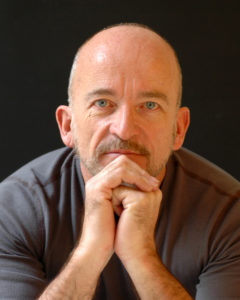 MARK DOTY is the author of the nine collections of poetry, most recently Deep Lane (W.W. Norton, 2015) and Fire to Fire: New and Selected Poems (HarperCollins, 2008), which received the National Book Award. His collection, My Alexandria (HarperCollins, 1993), won the National Book Critics Circle Award in Poetry and the Los Angeles Times Book Prize for Poetry. His other awards include a 1994 Whiting Award, a 1994 Guggenheim Fellowship for Humanities, the T.S. Eliot Prize, and three Lambda Literary Awards for Gay Men’s Poetry for Atlantis (1995), Source (2001), and Fire to Fire (2008). Doty also has published three memoirs. His most recent memoir, Dog Years (HarperCollins, 2005), received the 2007 Lambda Literary Award for Gay Memoir/Biography as well as the 2008 Stonewall Book Award. Doty wrote the book-length essay, Still Life with Oysters and Lemon. In 2012, Doty served as guest editor for The Best American Poetry 2012 (Scribners, 2012). He currently serves as Distinguished Professor of English and Director of Writers House at Rutgers University in New Jersey. In 2018, he was awarded The Robert Creeley Award.
MARK DOTY is the author of the nine collections of poetry, most recently Deep Lane (W.W. Norton, 2015) and Fire to Fire: New and Selected Poems (HarperCollins, 2008), which received the National Book Award. His collection, My Alexandria (HarperCollins, 1993), won the National Book Critics Circle Award in Poetry and the Los Angeles Times Book Prize for Poetry. His other awards include a 1994 Whiting Award, a 1994 Guggenheim Fellowship for Humanities, the T.S. Eliot Prize, and three Lambda Literary Awards for Gay Men’s Poetry for Atlantis (1995), Source (2001), and Fire to Fire (2008). Doty also has published three memoirs. His most recent memoir, Dog Years (HarperCollins, 2005), received the 2007 Lambda Literary Award for Gay Memoir/Biography as well as the 2008 Stonewall Book Award. Doty wrote the book-length essay, Still Life with Oysters and Lemon. In 2012, Doty served as guest editor for The Best American Poetry 2012 (Scribners, 2012). He currently serves as Distinguished Professor of English and Director of Writers House at Rutgers University in New Jersey. In 2018, he was awarded The Robert Creeley Award.
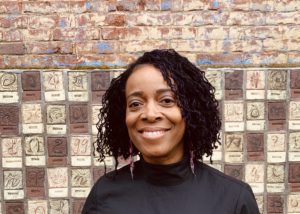 Yona Harvey is the author of the poetry collections You Don’t Have To Go To Mars for Love (Four Way Books), winner of the BelieverBook Award, and Hemming the Water (Four Way Books), winner of the Kate Tufts Discovery Award. Her work has been published and anthologized in many publications including Letters to the Future: black women : radical writing and A Poet’s Craft: A Comprehensive Guide to Making and Sharing Your Poetry. She contributed to Marvel’s World of Wakanda and co-authored with Ta-Nehisi Coates Black Panther and the Crew. She has worked with teenagers writing about mental health issues in collaboration with Creative Nonfictionmagazine and serves on the editorial board of Poetry Daily. Her website is yonaharvey.com.
Yona Harvey is the author of the poetry collections You Don’t Have To Go To Mars for Love (Four Way Books), winner of the BelieverBook Award, and Hemming the Water (Four Way Books), winner of the Kate Tufts Discovery Award. Her work has been published and anthologized in many publications including Letters to the Future: black women : radical writing and A Poet’s Craft: A Comprehensive Guide to Making and Sharing Your Poetry. She contributed to Marvel’s World of Wakanda and co-authored with Ta-Nehisi Coates Black Panther and the Crew. She has worked with teenagers writing about mental health issues in collaboration with Creative Nonfictionmagazine and serves on the editorial board of Poetry Daily. Her website is yonaharvey.com.
John Murillo is the author of the poetry collections, Up Jump the Boogie (Cypher, 2010 & Four Way Books, 2020), finalist for both the Kate Tufts Discovery and the Pen Open Book Awards, and Kontemporary American Poetry (Four Way Books, 2020), winner of the Kingsley Tufts Poetry and the Poetry Society of Virginia’s North American Book Awards and finalist for the Pen/Voelcker Award for Poetry and the NAACP Image Award. His other honors include the Four Quartets Prize from the T.S. Eliot Foundation and the Poetry Society of America, two Larry Neal Writers’ Awards, a pair of Pushcart Prizes, the Poetry Foundation’s J Howard and Barbara MJ Wood Prize, an NYSCA/NYFA Artist Fellowship, and fellowships from the National Endowment for the Arts, the Bread Loaf Writers Conference, the Provincetown Fine Arts Work Center, Cave Canem Foundation and the Wisconsin Institute for Creative Writing. Recent poems have appeared in such publications as American Poetry Review, Poetry, and Best of American Poetry 2017, 2019, and 2020. He is an assistant professor of English and director of the creative writing program at Wesleyan University, and he also teaches in the low residency MFA program at Sierra Nevada University.
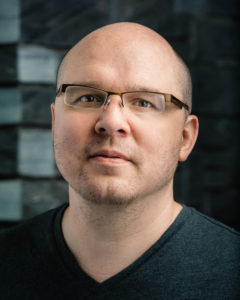
Matthew Olzmann is the author of two collections of poems, Mezzanines, which was selected for the 2011 Kundiman Prize, and Contradictions in the Design. His third book, Constellation Route, is forthcoming from Alice James Books in January 2022. A recipient of fellowships from the National Endowment for the Arts, Kundiman, MacDowell, and the Kresge Arts Foundation, Olzmann’s work has appeared in Best American Poetry, Pushcart Prize XLV, Kenyon Review, New England Review, Southern Review, and elsewhere. He is now a Senior Lecturer of Creative Writing at Dartmouth College and also teaches in the MFA Program for Writers at Warren Wilson College.
Diane Seuss’s most recent collection is frank: sonnets (Graywolf Press 2021). Still Life with Two Dead Peacocks and a Girl, (Graywolf Press 2018) was a finalist for the National Book Critics Circle Award and the Los Angeles Times Book Prize in Poetry. Four-Legged Girl (Graywolf Press 2015) was a finalist for the Pulitzer Prize. Wolf Lake, White Gown Blown Open (University of Massachusetts Press 2010) received the Juniper Prize. Seuss was educated at Kalamazoo College and Western Michigan University, with a BA in Creative Writing and an MSW. She has taught at Kalamazoo College, Colorado College, the University of Michigan, Washington University in St. Louis, and for the Stonecoast MFA program. Seuss was a 2020 Guggenheim Fellow and a recipient of the 2021 John Updike Award from the Academy of American Arts and Letters. Seuss was raised by a single mother in rural Michigan, which she continues to call home.
Yusef Komunyakaa’s latest collection, Everyday Mojo Songs of Earth: New and Selected Poems, will be published in June, 2021, by Farrar, Straus and Giroux.
(Note: The following bio is from poets.org)
On April 29, 1947, Yusef Komunyakaa was born in Bogalusa, Louisiana, where he was raised during the beginning of the Civil Rights movement. He served in the United States Army from 1969 to 1970 as a correspondent, and as managing editor of the Southern Cross during the Vietnam war, earning him a Bronze Star.
He began writing poetry in 1973, and received his bachelor’s degree from the University of Colorado Springs in 1975. His first book of poems, Dedications & Other Darkhorses (R. M. C. A. J. Books), was published in 1977, followed by Lost in the Bonewheel Factory (Lynx House Press) in 1979. During this time, he earned his MA and MFA in creative writing from Colorado State University and the University of California, Irvine, respectively.
Komunyakaa first received wide recognition following the 1984 publication of Copacetic (Wesleyan University Press), a collection of poems built from colloquial speech which demonstrated his incorporation of jazz influences. He followed the book with two others: I Apologize for the Eyes in My Head (Wesleyan University Press, 1986), winner of the San Francisco Poetry Center Award; and Dien Cai Dau (Wesleyan University Press, 1988), which won The Dark Room Poetry Prize and has been cited by poets such as William Matthews and Robert Hass as being among the best writing on the war in Vietnam.
Since then, he has published several books of poems, including The Emperor of Water Clocks (Farrar, Straus and Giroux, 2015); The Chameleon Couch (Farrar, Straus and Giroux, 2011); Warhorses (Farrar, Straus and Giroux, 2008); Taboo: The Wishbone Trilogy, Part 1 (Farrar, Straus and Giroux, 2006); Pleasure Dome: New & Collected Poems, 1975-1999 (Wesleyan University Press, 2001); Talking Dirty to the Gods (Farrar, Straus and Giroux, 2000); Thieves of Paradise (Wesleyan University Press, 1998), which was a finalist for the National Book Critics Circle Award; Neon Vernacular: New & Selected Poems 1977-1989 (Wesleyan University Press, 1994), for which he received the Pulitzer Prize and the Kingsley Tufts Poetry Award; and Magic City (Wesleyan University Press, 1992).
Komunyakaa’s prose is collected in Blues Notes: Essays, Interviews & Commentaries(University of Michigan Press, 2000). He also coedited The Jazz Poetry Anthology (with J. A. Sascha Feinstein, 1991), cotranslated The Insomnia of Fire by Nguyen Quang Thieu (with Martha Collins, 1995), and served as guest editor for The Best of American Poetry 2003.
He has also written dramatic works, including Gilgamesh: A Verse Play (Wesleyan University Press, 2006), and Slip Knot, a libretto in collaboration with Composer T. J. Anderson and commissioned by Northwestern University.
About his poetry, the poet Toi Derricotte wrote for the Kenyon Review, “He takes on the most complex moral issues, the most harrowing ugly subjects of our American life. His voice, whether it embodies the specific experiences of a black man, a soldier in Vietnam, or a child in Bogalusa, Louisiana, is universal. It shows us in ever deeper ways what it is to be human.”
Komunyakaa is the recipient of the 2011 Wallace Stevens Award. His other honors include the Ruth Lilly Poetry Prize, the William Faulkner Prize from the Université de Rennes, the Thomas Forcade Award, the Hanes Poetry Prize, fellowships from the Fine Arts Work Center in Provincetown, the Louisiana Arts Council, and the National Endowment for the Arts.
He was elected a Chancellor of the Academy of American Poets in 1999. He has taught at University of New Orleans, Indiana University, as a professor in the Council of Humanities and Creative Writing Program at Princeton University. He lives in New York City where he is currently Distinguished Senior Poet in New York University’s graduate creative writing program.
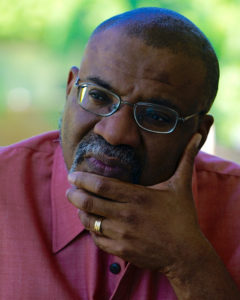 Born in Ghana in 1962, Kwame Dawes spent most of his childhood and early adult life in Jamaica. As a poet, he is profoundly influenced by the rhythms and textures of Ghana, citing in an interview his “spiritual, intellectual, and emotional engagement with reggae music.” Indeed, his book Bob Marley: Lyrical Genius remains the most authoritative study of the lyrics of Bob Marley. Of his sixteen collections of poetry, his most recent titles include Bivouac (Akashic Books, 2019), Duppy Conqueror (Copper Canyon, 2013), shortlisted for the PEN Open Book Award; Wheels (2011); Back of Mount Peace (2009); Hope’s Hospice (2009); Wisteria, finalist for the Patterson Memorial Prize; Impossible Flying (2007); and Gomer’s Song (2007). Progeny of Air (Peepal Tree, 1994) was the winner of the Forward Poetry Prize for Best First Collection in the UK. Other poetry collections include Resisting the Anomie (Goose Lane, 1995); Prophets (Peepal Tree, 1995); Jacko Jacobus, (Peepal Tree, 1996); and Requiem, (Peepal Tree, 1996), a suite of poems inspired by the illustrations of African American artist Tom Feelings in his landmark book The Middle Passage: White Ships/Black Cargo; and Shook Foil (Peepal Tree, 1998), a collection of reggae-inspired poems. His book,Midland, was awarded the Hollis Summers Poetry Prize by the Ohio University Press (2001). Dawes was a winner of a Pushcart Prize for the best American poetry of 2001 for his long poem, “Inheritance.” His seventeenth collection, City of Bones, published in 2017 along with two UK releases Vuelo: Poemas, a translation of Gustavo Osorio and Speak from Here to There: Poemswritten along with John Kinsella. His most recent collection is Nebraska (UNP, 2019), a traverse into the intersection of memory, home, and artistic invention. He was also among the 2018 recipients for the Windham-Campbell Prize for Poetry (Note: This bio is from Blue Flower Arts).
Born in Ghana in 1962, Kwame Dawes spent most of his childhood and early adult life in Jamaica. As a poet, he is profoundly influenced by the rhythms and textures of Ghana, citing in an interview his “spiritual, intellectual, and emotional engagement with reggae music.” Indeed, his book Bob Marley: Lyrical Genius remains the most authoritative study of the lyrics of Bob Marley. Of his sixteen collections of poetry, his most recent titles include Bivouac (Akashic Books, 2019), Duppy Conqueror (Copper Canyon, 2013), shortlisted for the PEN Open Book Award; Wheels (2011); Back of Mount Peace (2009); Hope’s Hospice (2009); Wisteria, finalist for the Patterson Memorial Prize; Impossible Flying (2007); and Gomer’s Song (2007). Progeny of Air (Peepal Tree, 1994) was the winner of the Forward Poetry Prize for Best First Collection in the UK. Other poetry collections include Resisting the Anomie (Goose Lane, 1995); Prophets (Peepal Tree, 1995); Jacko Jacobus, (Peepal Tree, 1996); and Requiem, (Peepal Tree, 1996), a suite of poems inspired by the illustrations of African American artist Tom Feelings in his landmark book The Middle Passage: White Ships/Black Cargo; and Shook Foil (Peepal Tree, 1998), a collection of reggae-inspired poems. His book,Midland, was awarded the Hollis Summers Poetry Prize by the Ohio University Press (2001). Dawes was a winner of a Pushcart Prize for the best American poetry of 2001 for his long poem, “Inheritance.” His seventeenth collection, City of Bones, published in 2017 along with two UK releases Vuelo: Poemas, a translation of Gustavo Osorio and Speak from Here to There: Poemswritten along with John Kinsella. His most recent collection is Nebraska (UNP, 2019), a traverse into the intersection of memory, home, and artistic invention. He was also among the 2018 recipients for the Windham-Campbell Prize for Poetry (Note: This bio is from Blue Flower Arts).
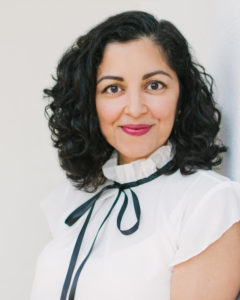 AIMEE NEZHUKUMATATHIL (pronounced neh-ZOO / koo-mah / tah-TILL) is the author of four poetry collections: Oceanic (Copper Canyon 2018), Lucky Fish (2011), winner of the gold medal in Poetry from the Independent Publisher Book Awards and the Eric Hoffer Grand Prize for Independent Books; At the Drive In Volcano (2007), winner of the Balcones Prize; and Miracle Fruit (2003), winner of the Tupelo Press Prize, ForeWord Magazine’s Book of the Year Award, the Global Filipino Award and a finalist for The Glasgow Prize and the Asian American Literary Award. Her most recent chapbook is Lace & Pyrite, a collaboration of nature poems with the poet Ross Gay. She is the poetry editor of Orion magazine and her poems have appeared in the Best American Poetry series, American Poetry Review, New England Review, Poetry, Ploughshares,and Tin House.
AIMEE NEZHUKUMATATHIL (pronounced neh-ZOO / koo-mah / tah-TILL) is the author of four poetry collections: Oceanic (Copper Canyon 2018), Lucky Fish (2011), winner of the gold medal in Poetry from the Independent Publisher Book Awards and the Eric Hoffer Grand Prize for Independent Books; At the Drive In Volcano (2007), winner of the Balcones Prize; and Miracle Fruit (2003), winner of the Tupelo Press Prize, ForeWord Magazine’s Book of the Year Award, the Global Filipino Award and a finalist for The Glasgow Prize and the Asian American Literary Award. Her most recent chapbook is Lace & Pyrite, a collaboration of nature poems with the poet Ross Gay. She is the poetry editor of Orion magazine and her poems have appeared in the Best American Poetry series, American Poetry Review, New England Review, Poetry, Ploughshares,and Tin House.
In 2016-17, Nezhukumatathil has served as the Grisham Writer-in-Residence at the University of Mississippi’s MFA program in creative writing. In Fall 2017, she joined the MFA program of the University of Mississippi as full professor. Nezhukumatathil’s first nonfiction book, World of Wonders (Milkweed Press, 2020), is an illustrated collection of nature essays told in the context of her unusual childhood growing up on the grounds of mental institutions in rural America and navigating the parent-push towards science while finding herself drawn toward language—all unfolding through detailed and delightful observations about the oddities and fascinations of our planet.
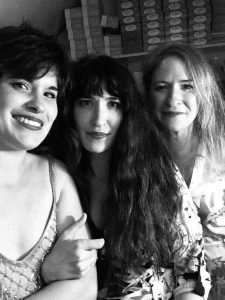 The Parkington Sisters are from Wellfleet Massachusetts, a town of crashing waves, gnarled pine trees, world famous oysters and the only town clock in the world that still rings ship’s time. The three sisters emerge from a lineage of musicians – daughters of a prog rock musician and a classically trained guitarist, they were raised constantly playing and writing music together, an immersion that has led to the individual and collective creative force they are today. Rose, Sarah and Ariel are songwriters and dynamic multi-instrumentalists who play guitar, piano, violin and viola. Like their hometown surroundings, the band boasts a collective magic — part chemistry, part alchemy, and entirely mysterious. They incorporate the eclectic songwriting and passions of artists like Joni Mitchell, Aimee Mann, Neil Young & June Carter, but with their own unique brand of soaring melodies, vibrant harmonies and intricate string arrangements.
The Parkington Sisters are from Wellfleet Massachusetts, a town of crashing waves, gnarled pine trees, world famous oysters and the only town clock in the world that still rings ship’s time. The three sisters emerge from a lineage of musicians – daughters of a prog rock musician and a classically trained guitarist, they were raised constantly playing and writing music together, an immersion that has led to the individual and collective creative force they are today. Rose, Sarah and Ariel are songwriters and dynamic multi-instrumentalists who play guitar, piano, violin and viola. Like their hometown surroundings, the band boasts a collective magic — part chemistry, part alchemy, and entirely mysterious. They incorporate the eclectic songwriting and passions of artists like Joni Mitchell, Aimee Mann, Neil Young & June Carter, but with their own unique brand of soaring melodies, vibrant harmonies and intricate string arrangements.
They have shared the stage with such divergent artists as Mavis Staples, Bruce Springsteen, Dispatch, Blitzen Trapper and the Dropkick Murphys and have performed in studios and on stages across the US, Canada, and Europe, including New York’s Radio City Music Hall, Bonnaroo, NPR’s Mountain Stage, and the Dodge Poetry Festival. Their releases include the recent string accompaniment to the spoken word release The Book of Hylas and their new collaboration with Tanya Donelly. Their new album Collide, produced by Chris Shaw, will also be released in the Spring.
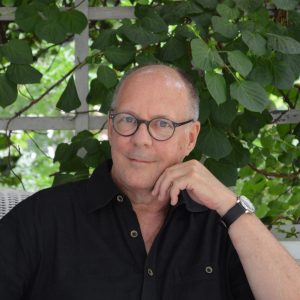 DAVID BAKER is the author of Swift: New & Selected Poems (Norton 2019), Scavenger Loop (Norton 2015) and Never-Ending Birds, which won the Theodore Roethke Memorial Poetry Prize. His five books of prose include Show Me Your Environment: Essays on Poetry, Poets, & Poems, and Radiant Lyre: Essays on Lyric Poetry (Graywolf). Among his awards are prizes and grants from the Guggenheim Foundation, National Endowment for the Arts, Mellon Foundation, and Poetry Society of America, and others. He holds the Thomas B. Fordham Chair of Creative Writing at Denison University, teaches in the Warren Wilson MFA program and is Poetry Editor of The Kenyon Review.
DAVID BAKER is the author of Swift: New & Selected Poems (Norton 2019), Scavenger Loop (Norton 2015) and Never-Ending Birds, which won the Theodore Roethke Memorial Poetry Prize. His five books of prose include Show Me Your Environment: Essays on Poetry, Poets, & Poems, and Radiant Lyre: Essays on Lyric Poetry (Graywolf). Among his awards are prizes and grants from the Guggenheim Foundation, National Endowment for the Arts, Mellon Foundation, and Poetry Society of America, and others. He holds the Thomas B. Fordham Chair of Creative Writing at Denison University, teaches in the Warren Wilson MFA program and is Poetry Editor of The Kenyon Review.
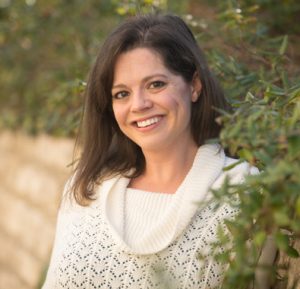
TRACI BRIMHALL is the author of four poetry collections: Come the Slumberless from the Land of Nod (Copper Canyon); Saudade (Copper Canyon); Our Lady of the Ruins (W.W. Norton), winner of the Barnard Women Poets Prize; and Rookery (Southern Illinois University Press), winner of the Crab Orchard Series in Poetry First Book Award. Her poems have appeared in The New Yorker, Poetry, The Believer, The New Republic, Orion, and Best American Poetry. She’s received fellowships from the Wisconsin Institute for Creative Writing and the National Endowment for the Arts. She’s the Director of Creative Writing at Kansas State University and lives in Manhattan, KS.
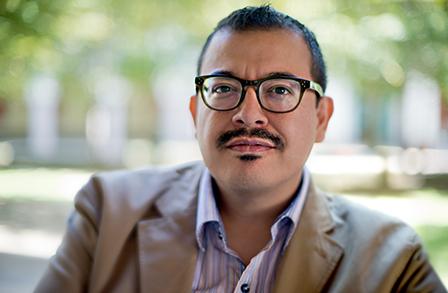
EDUARDO C. CORRAL is the author of two books. Slow Lightning, winner of the Yale Series of Younger Poets Competition. Graywolf Press will publish his second book, Guillotine, in 2020. He’s the recipient of a Whiting Writers’ Award, a National Endowment for the Arts Fellowship, and the Hodder Fellowship and the National Holmes Poetry Prize, both from Princeton University. He teaches in the MFA program in Creative Writing at North Carolina State University.
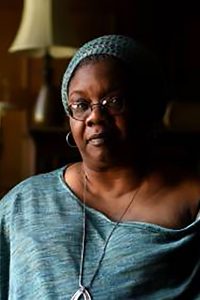
Vievee Francis is the author of three books of poetry: Blue-Tail Fly; Horse in the Dark, winner of the Cave Canem Northwestern University Poetry Prize for a second collection; and Forest Primeval, winner of the Hurston Wright Legacy Award and the 2017 Kingsley-Tufts Poetry Award. Her work has appeared in numerous print and online journals, textbooks, and anthologies, including Poetry, Best American Poetry 2010, 2014, 2017, 2019 and Angles of Ascent: A Norton Anthology of Contemporary African American Poetry. She serves as an associate editor of Callaloo and an associate professor of English and Creative Writing at Dartmouth College in Hanover, NH.
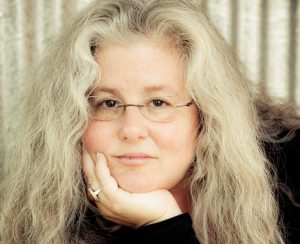
Dana Levin’s most recent book of poetry is the remarkable Banana Palace (Copper Canyon Press, 2016). Her first book, In the Surgical Theatre, won the 1999 American Poetry Review/Honickman First Book Prize and went on to receive nearly every award available to first books and emerging poets. Copper Canyon Press also published her books, Wedding Day, in 2005 and Sky Burial in 2011. Levin’s poetry and essays have appeared in many anthologies and magazines, including The Best American Poetry 2015, The Arcadia Project: North American Post-Modern Pastoral, The New York Times, Los Angeles Review of Books, Boston Review, The AmericanPoetry Review, and Poetry. Her work has received fellowships and awards from the National Endowment for the Arts, PEN, the Witter Bynner Foundation and the Library of Congress, as well as the Rona Jaffe, Whiting and Guggenheim Foundations. A teacher of poetry for over twenty years, Levin splits her time between Santa Fe, New Mexico and Maryville University in St. Louis, where she serves as Distinguished Writer in Residence.
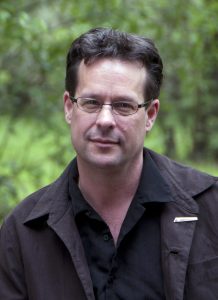 KEVIN PRUFER is the author of seven books of poetry and the editor of numerous anthologies, the most recent of which are How He Loved Them (Four Way Books, 2018), Churches (Four Way Books, 2014), In a Beautiful Country (Four Way Books, 2011), National Anthem(Four Way Books, 2008), New European Poets (Graywolf Press, 2008; w/ Wayne Miller), and Into English: Poems, Translations, Commentaries (Graywolf Press, 2017; w/Martha Collins). Prufer is also Co-Curator of the Unsung Masters Series, and Professor in the Creative Writing Program at the University of Houston.
KEVIN PRUFER is the author of seven books of poetry and the editor of numerous anthologies, the most recent of which are How He Loved Them (Four Way Books, 2018), Churches (Four Way Books, 2014), In a Beautiful Country (Four Way Books, 2011), National Anthem(Four Way Books, 2008), New European Poets (Graywolf Press, 2008; w/ Wayne Miller), and Into English: Poems, Translations, Commentaries (Graywolf Press, 2017; w/Martha Collins). Prufer is also Co-Curator of the Unsung Masters Series, and Professor in the Creative Writing Program at the University of Houston.
Among Prufer’s awards and honors are four Pushcart prizes and multiple Best American Poetry selections, numerous awards from the Poetry Society of America, and fellowships from the National Endowment for the Arts and the Lannan Foundation. His most recent book was long listed for the 2019 Pulitzer Prize and received the Julie Suk Award for best poetry book from the American literary press.
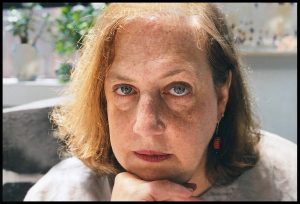
Martha Rhodes holds a BA from the New School and an MFA from the MFA Program for Writers at Warren Wilson College (1991), and has taught in the program since 2002. She is also on the faculty of Sarah Lawrence College’s MFA program and teaches at conferences around the country. Rhodes is the director of Four Way Books, a literary press in NYC. She is the author of five poetry collections, most recently “The Thin Wall” from Univ of Pittsburgh Press. She lives in NYC.
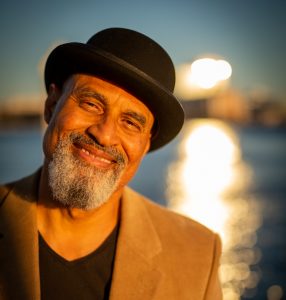
Tim Seibles is the author of several poetry collections including Hurdy-Gurdy, Hammerlock, Buffalo Head Solos, and Fast Animal, which was a finalist for the 2012 National Book Award and winner of the Theodore Roethke Memorial Poetry Prize. Tim is a former NEA fellow and recipient of a fellowship from the Provincetown Fine Arts Work Center. His latest collection, One Turn Around the Sun, was released in 2017. He recently completed a two-year appointment as Poet laureate of Virginia.
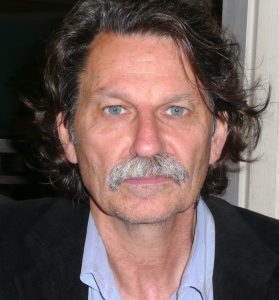 GREGORY ORR is the author of more than 10 collections of poetry and several volumes of essays, criticism, and memoir, Gregory Orr is a master of the short, personal lyric. His poetry has been widely anthologized and translated into at least 10 languages. Observes critic Hank Lazer, “From Burning the Empty Nests (1973) to the present, Orr gradually developed the ability to fuse his incredible skill at visual precision—the signature of his image-based work in his very first book—with an insistent musical quality, joining visual precision with a beauty of sound.”
GREGORY ORR is the author of more than 10 collections of poetry and several volumes of essays, criticism, and memoir, Gregory Orr is a master of the short, personal lyric. His poetry has been widely anthologized and translated into at least 10 languages. Observes critic Hank Lazer, “From Burning the Empty Nests (1973) to the present, Orr gradually developed the ability to fuse his incredible skill at visual precision—the signature of his image-based work in his very first book—with an insistent musical quality, joining visual precision with a beauty of sound.”
When Orr was 12, he accidentally killed his brother in a hunting accident, an event his family was never able to talk about. His mother died soon thereafter, and Orr found in poetry the transformative power of language. His near-death experience as a member of the Student Nonviolent Coordinating Committee (SNCC) during the civil rights movement, in which he was jailed and severely beaten, contributes to the urgency with which his poems seek transformation. In an NPR story on his craft, Orr states, “I believe in poetry as a way of surviving the emotional chaos, spiritual confusions, and traumatic events that come with being alive.”
Orr has received fellowships from the Guggenheim Foundation, the National Endowment for the Arts, and the Virginia Foundation for the Humanities. He has also been a Fulbright Scholar and a Rockefeller Fellow at the Institute for the Study of Culture and Violence, and he received the Award in Literature from the American Academy and Institute of Arts and Letters. City of Salt (1995) was a finalist for the LA Times Book Award for Poetry.
Orr received his B.A. from Antioch College and his MFA from Columbia University. He founded the MFA program at the University of Virginia in 1975, and was the poetry editor of the Virginia Quarterly Review from 1978 to 2003.
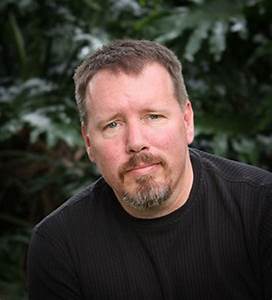
BRIAN TURNER was born in Visalia, California. He received a BA from Fresno State in 1994 and an MFA from the University of Oregon in 1996. He is the author of the poetry collections Phantom Noise (Alice James Books, 2010), which was shortlisted for the T. S. Eliot Prize, and Here, Bullet (Alice James Books, 2005), as well as the memoir My Life as a Foreign Country (W. W. Norton, 2014). A veteran of the US Army, Turner is known for his writing about the Iraq War. He is the recipient of numerous honors, including fellowships from the Guggenheim Foundation, the Lannan Foundation, and the National Endowment for the Arts. He directs the MFA program at Sierra Nevada College and lives in Orlando, Florida.
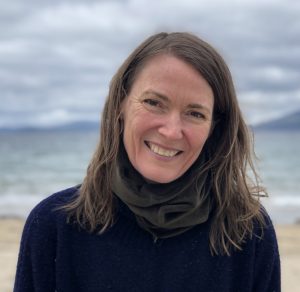 Karin de Weille has taught literature at the University of Toronto, the New School, and John Jay College, where she was assistant professor, and creative writing at various venues: the Hugo House in Seattle, family shelters, senior centers, private schools, home schools and for various organizations including Poets & Writers in New York City. Her poems and essays have appeared in The Writer’s Chronicle, BigCityLit, www.poetz.com, Interpoezie, and other journals and anthologies. She has organized much lauded panels for the AWP conference, presenting talks there as well as at the Palm Beach Poetry Festival, the Virginia Woolf conference, and other conferences. She has created multimedia work for four iterations of Watersines at St. Marks Cathedral in Seattle, performed the lead role in Illuminatio at the Velocity Theater in Seattle, and most recently written and performed the first act of a poetry/movement theater piece for the Freehold Theater in Seattle. She holds a BA in economics from Princeton, an MFA from Sarah Lawrence College, and PhD in literature from the University of Toronto. Writings and recordings can be found at http://www.karindeweille.com and on vimeo.
Karin de Weille has taught literature at the University of Toronto, the New School, and John Jay College, where she was assistant professor, and creative writing at various venues: the Hugo House in Seattle, family shelters, senior centers, private schools, home schools and for various organizations including Poets & Writers in New York City. Her poems and essays have appeared in The Writer’s Chronicle, BigCityLit, www.poetz.com, Interpoezie, and other journals and anthologies. She has organized much lauded panels for the AWP conference, presenting talks there as well as at the Palm Beach Poetry Festival, the Virginia Woolf conference, and other conferences. She has created multimedia work for four iterations of Watersines at St. Marks Cathedral in Seattle, performed the lead role in Illuminatio at the Velocity Theater in Seattle, and most recently written and performed the first act of a poetry/movement theater piece for the Freehold Theater in Seattle. She holds a BA in economics from Princeton, an MFA from Sarah Lawrence College, and PhD in literature from the University of Toronto. Writings and recordings can be found at http://www.karindeweille.com and on vimeo.
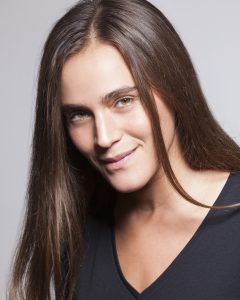
Jessica Jacobs is the author of Take Me with You, Wherever You’re Going (Four Way Books), winner of the Devil’s Kitchen and Goldie Awards, and Pelvis with Distance (White Pine Press), a biography-in-poems of Georgia O’Keeffe, winner of the New Mexico Book Award. Chapbook Editor for Beloit Poetry Journal, she lives in Asheville, NC, with her wife, the poet Nickole Brown, with whom she co-authored Write It! 100 Poetry Prompts to Inspire (Spruce Books/PenguinRandomHouse), and is at work on a collection of poems exploring spirituality, Torah, and Midrash.
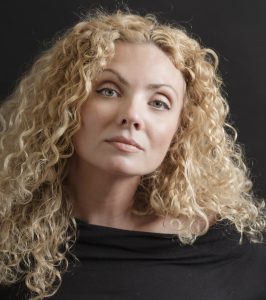 Nickole Brown is the author of Sister and Fanny Says. She teaches as part of the Sewanee School of Letters Program and lives in Asheville, North Carolina, where she volunteers at several different animal sanctuaries. Since 2016, she’s been writing about these animals, resisting the kind of pastorals that made her (and many of the working-class folks from the Kentucky that raised her) feel shut out of nature and the writing about it. To Those Who Were Our First Gods, a chapbook of these first nine poems, won the 2018 Rattle Prize, and her essay-in-poems, The Donkey Elegies, was published by Sibling Rivalry Press in 2020. In 2021, Spruce Books of Penguin Random House published Write It! 100 Poetry Prompts to Inspire, a book she co-authored with her wife Jessica Jacobs, and they regularly teach generative writing sessions together as part of their SunJune Literary Collaborative.
Nickole Brown is the author of Sister and Fanny Says. She teaches as part of the Sewanee School of Letters Program and lives in Asheville, North Carolina, where she volunteers at several different animal sanctuaries. Since 2016, she’s been writing about these animals, resisting the kind of pastorals that made her (and many of the working-class folks from the Kentucky that raised her) feel shut out of nature and the writing about it. To Those Who Were Our First Gods, a chapbook of these first nine poems, won the 2018 Rattle Prize, and her essay-in-poems, The Donkey Elegies, was published by Sibling Rivalry Press in 2020. In 2021, Spruce Books of Penguin Random House published Write It! 100 Poetry Prompts to Inspire, a book she co-authored with her wife Jessica Jacobs, and they regularly teach generative writing sessions together as part of their SunJune Literary Collaborative.
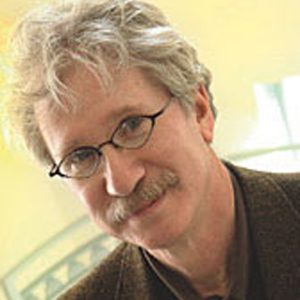
Born and raised in Houston, Reginald Gibbons earned his BA in Spanish and Portuguese from Princeton University, and both his MA in English and creative writing and his PhD in comparative literature from Stanford University. Gibbons is the author of Last Lake (University of Chicago Press, 2016), Slow Trains Overhead: Chicago Poems and Stories (University of Chicago Press, 2010), and Creatures of a Day: Poems (LSU Press, 2008). He is the Frances Hooper Professor of Arts and Humanities at Northwestern University and lives in Evanston, Illinois.
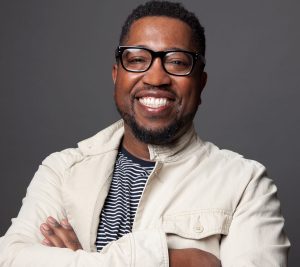 Major Jackson is the author of five collections of poetry, most recently The Absurd Man (Norton: 2020) and Roll Deep (Norton: 2015), winner of the 2016 Vermont Book Award and hailed in the New York Times Book Review as “a remixed Odyssey.” He is the editor of Best American Poetry 2019, The Library of America’s Countee Cullen: Collected Poems and Renga for Obama: An Occasional Poem. A recipient of fellowships from the Fine Arts Work Center in Provincetown, Guggenheim Foundation, the National Endowment for the Arts, and the Radcliffe Institute for Advanced Study at Harvard University, he has been awarded a Cave Canem Book Prize, a Whiting Writers’ Award and has been honored by the Pew Fellowship in the Arts. Major Jackson lives in South Burlington, Vermont, where he is the Richard A. Dennis Professor of English at the University of Vermont. He serves as the poetry editor of The Harvard Review.
Major Jackson is the author of five collections of poetry, most recently The Absurd Man (Norton: 2020) and Roll Deep (Norton: 2015), winner of the 2016 Vermont Book Award and hailed in the New York Times Book Review as “a remixed Odyssey.” He is the editor of Best American Poetry 2019, The Library of America’s Countee Cullen: Collected Poems and Renga for Obama: An Occasional Poem. A recipient of fellowships from the Fine Arts Work Center in Provincetown, Guggenheim Foundation, the National Endowment for the Arts, and the Radcliffe Institute for Advanced Study at Harvard University, he has been awarded a Cave Canem Book Prize, a Whiting Writers’ Award and has been honored by the Pew Fellowship in the Arts. Major Jackson lives in South Burlington, Vermont, where he is the Richard A. Dennis Professor of English at the University of Vermont. He serves as the poetry editor of The Harvard Review.
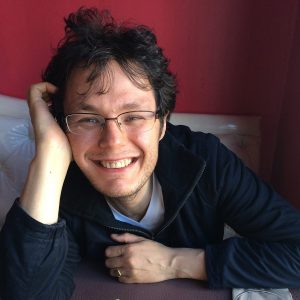
Ilya Kaminsky (born April 18, 1977 in Odessa, Soviet Union, now Ukraine) is a Russian-American poet, critic, translator and professor. He began to write poetry seriously as a teenager in Odessa, publishing a chapbook in Russian entitled The Blessed City. His first published poetry collection in English was a chapbook, Musica Humana (Chapiteau Press, 2002). His second collection in English, Dancing in Odessa (Tupelo Press, 2004), earned him a 2005 Whiting Writers’ Award, the American Academy of Arts and Letters Metcalf Award, the Ruth Lilly Fellowship, and the Dorset Prize, and was named the 2005 ForeWord Magazine Book of the Year in Poetry. In 2008, he was awarded a Lannan Literary Fellowship. His poems have appeared in literary journals and magazines including The Kenyon Review, New Republic, Harvard Review, and Poetry. His latest book is Deaf Republic (Graywolf, 2019) which is a finalist for the 2019 National Book Award.
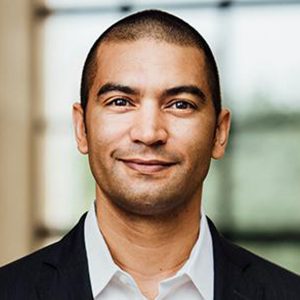
Adrian Matejka was born in Nuremberg, Germany and grew up in Indianapolis, Indiana. He is a graduate of Indiana University and the MFA program at Southern Illinois University Carbondale. He is the author of The Devil’s Garden (Alice James Books, 2003) which won the New York / New England Award and Mixology (Penguin, 2009), a winner of the 2008 National Poetry Series. Mixology was also a finalist for an NAACP Image Award for Outstanding Literature. His third collection, The Big Smoke (Penguin, 2013), focuses on Jack Johnson, the first African American heavyweight champion of the world. The Big Smoke was awarded the 2014 Anisfield-Wolf Book Award and was also a finalist for the 2013 National Book Award, 2014 Hurston/Wright Legacy Award, and 2014 Pulitzer Prize in poetry. His most recent book, Map to the Stars, was published by Penguin in 2017. Among Matejka’s other honors are the Eugene and Marilyn Glick Indiana Authors Award, the Julia Peterkin Award, a Pushcart Prize, and fellowships from the Bellagio Center, the Guggenheim Foundation, the Lannan Foundation, and a Simon Fellowship from United States Artists. He teaches at Indiana University in Bloomington and is Poet Laureate of Indiana.
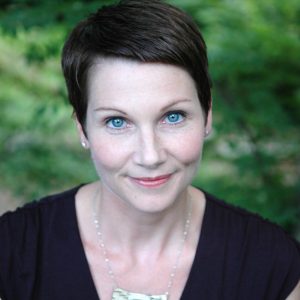
Maggie Smith is the author of three books of poetry: Good Bones (Tupelo Press, 2017); The Well Speaks of Its Own Poison (Tupelo Press, 2015); and Lamp of the Body (Red Hen Press, 2005). Lamp of the Body won the 2003 Benjamin Saltman Award from Red Hen Press. The Well Speaks of Its Own Poison won the 2012 Dorset Prize, selected by Kimiko Hahn, and the 2016 Gold Medal in Poetry for the Independent Publishers Book Awards. The collection was also a finalist for the National Poetry Series and the Montaigne Medal, and poems from this collection were awarded an NEA Fellowship in poetry. Smith is also the author of three chapbooks: Disasterology (Dream Horse Press, 2016); TheList of Dangers (Kent State/Wick Poetry Series, 2010); and Nesting Dolls (Pudding House, 2005). A freelance writer and editor, and a Consulting Editor for the Kenyon Review, Smith is also a passionate and enthusiastic teacher. She has taught creative writing at Gettysburg College, in the MFA program at The Ohio State University, and at various conferences and nonprofits around the country. She is the Visiting Poet at Ohio Wesleyan University for 2017–2018. She lives with her family in Ohio.
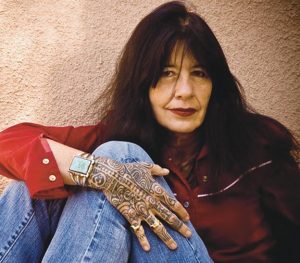
Joy Harjo’s eight books of poetry include Conflict Resolution for Holy Beings, How We Became Human: New and Selected Poems, and She Had Some Horses. Harjo’s memoir Crazy Brave won several awards, including the PEN USA Literary Award for Creative Non-Fiction and the American Book Award. She is the recipient of the Ruth Lilly Prize from the Poetry Foundation for Lifetime Achievement, the 2015 Wallace Stevens Award from the Academy of American Poets for proven mastery in the art of poetry, a Guggenheim Fellowship, the William Carlos Williams Award from the Poetry Society of America, and the United States Artist Fellowship. In 2014 she was inducted into the Oklahoma Writers Hall of Fame. A renowned musician, Harjo performs with her saxophone nationally and internationally, solo and with her band, the Arrow Dynamics. She has five award-winning CDs of music including the award-winning album Red Dreams, A Trail Beyond Tears and Winding Through the Milky Way, which won a Native American Music Award for Best Female Artist of the Year in 2009. Harjo’s most recent book of poetry, An American Sunrise, was published by W.W. Norton & Company, Inc. in August 2019. Harjo is the 23rd Poet Laureate of the United States and the first Native American to assume the role. She lives in Tulsa, Oklahoma.
 Angela Narciso Torres is the author of two full length poetry collections; Blood Orange (Willow Books Poetry Prize) and What Happens is Neither (Four Way Books); her chapbook, To the Bone, was published earlier this year by Sundress Publications. Her other work appears or is forthcoming in POETRY, Quarterly West, Missouri Review, Bellingham Review, Cortland Review, and PANK. A graduate of Warren Wilson’s MFA program and Harvard Graduate School of Education, Angela has received fellowships from Bread Loaf and Ragdale Foundation. She was awarded the 2019 Yeats Poetry Prize by the W.B. Yeats Society of New York. Born in Brooklyn and raised in Manila, she is a senior and reviews editor for RHINO and serves on the editorial panel of New England Review.
Angela Narciso Torres is the author of two full length poetry collections; Blood Orange (Willow Books Poetry Prize) and What Happens is Neither (Four Way Books); her chapbook, To the Bone, was published earlier this year by Sundress Publications. Her other work appears or is forthcoming in POETRY, Quarterly West, Missouri Review, Bellingham Review, Cortland Review, and PANK. A graduate of Warren Wilson’s MFA program and Harvard Graduate School of Education, Angela has received fellowships from Bread Loaf and Ragdale Foundation. She was awarded the 2019 Yeats Poetry Prize by the W.B. Yeats Society of New York. Born in Brooklyn and raised in Manila, she is a senior and reviews editor for RHINO and serves on the editorial panel of New England Review.
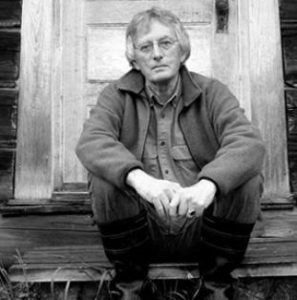
We were pleased to host Charles Wright at the 8th Annual Palm Beach Poetry Festival.
More biographical and publication information is available at https://poets.org/poet/charles-wright
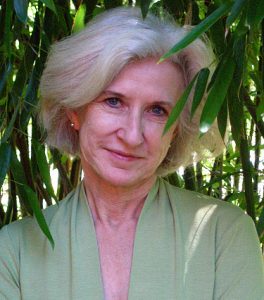
C.D. Wright (1949–2016 ) Arkansan, author of upwards of 20 books, professor for over three decades at Brown University, social activist, publisher, recipient of a Guggenheim, National Book Critics Circle Award, and Griffin Poetry Prize, literary map-maker, MacArthur “Genius,” mother, wife, poet laureate of Rhode Island, finalist for the Pulitzer Prize and National Book Award, Chancellor of the Academy of American Poets, friend, member of the American Academy of Arts and Sciences. These are just a few of the many ways one might describe C.D. Wright. And yet, when one tries to find her among these descriptions, none of them seem capacious enough.
C.D. Wright’s first book, Room Rented by a Single Woman was published by Lost Roads Press in Arkansas in 1977. In 1978, C.D. took on the role of Lost Roads’ editor, a position she would hold for thirty years. After completing her studies in Arkansas, she lived in New York and San Francisco, where she met the poet Forrest Gander. They moved to Mexico, then Arkansas where they married. The two then lived together in Providence, RI, where they raised a child, Brecht Wright Gander, and C.D. served as Israel J. Kapstein Professor of Literary Arts at Brown University for thirty-three years, helping countless young writers find their way into the world.
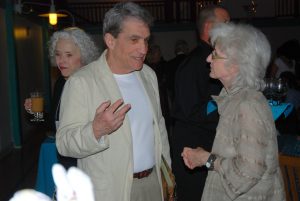
During those years in Rhode Island, C.D. wrote some of the most luminous and least predictable books American poetry has known. From the Southern-lyric poems of her early collections, such as Translation of the Gospel Back into Tongues and String Light, to her documentary collaboration with photographer Deborah Luster focused on the lives of Louisiana prisoners, One Big Self; from the rapturous long poem, Deepstep Come Shining, to the micro-essayistic works of The Poet, the Lion, Talking Pictures, El Farolito, A Wedding in St. Roch, The Big Box Store, The Warp in the Mirror, Spring, Midnights, Fire & All, C.D.’s work never repeated itself, but surprised its readers, swerving always toward new terrains of learning, evolving, and fidelity to the word. As her work makes clear from its start, for CD, ethics was a condition of being.
Over her lifetime, C.D. Wright’s works were published by leading presses and journals, such as Copper Canyon Press, Ecco, The New Yorker, Poetry Magazine, and The Nation, but also by innumerable independent, poet-run publishing projects that may well have been just starting out. She was democratic that way as in all things. Her readings and works were featured on NPR, PBS, and Poets.org, but also in the living rooms of fellow writers and friends. She received the nations greatest honors in art and literature, but she devoted Lost Roads to the discovery of new, often unpublished voices. Her engagement with writing was immediate and unpretentious, and based in the deeply-felt sense of generosity that permeates her books.
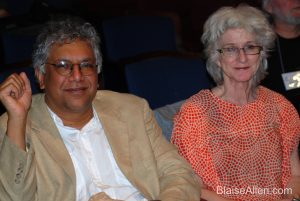
Poetry itself, for C.D., was that which liberates us by dodging categorization. “It may be that because poetry is the most difficult to pin to the wall,” she said, “it has a chance of a future.” And perhaps this is why C.D. Wright is so delightfully hard to pin to the wall, because she, like poetry, lived freely and variously and fully engaged with others and the world. As C.D. wrote, “It is a function of poetry to locate those zones inside us that would be free, and declare them so.” And declare them so she did, shining.
At the 7th Annual Palm Beach Poetry Festival in January 2011, C.D. Wright taught her workshop, Writing At The Edges Of Things: Being fierce, strange, calamitous, glowing, erroneous, blameless, side-splitting, starless, right-brained, formidable and unsure – now is the time to find the language compatible with your own condition. Whether one is writing to make amends, to get even, to fill the void, to impress the father, or just to pay off a few parking tickets… there are words for those motives and there is a shape for those words. As W.S. Merwin put it, “Never fear there is a hair hanging by everything it is the edges of things.” Bring new writing every day. Bring nothing you have written in advance of arriving. Writing will be done in and out of the workshop setting.
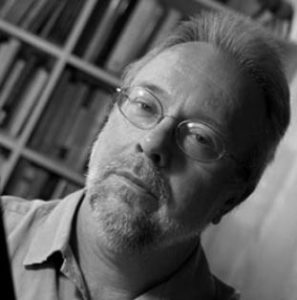
We were pleased to host David Wojahn at the 6th Annual Palm Beach Poetry Festival.
More biographical and publication information is available at https://poets.org/poet/david-wojahn
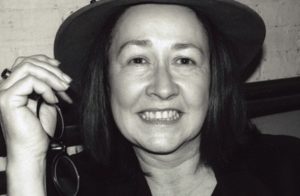
We were pleased to host Dara Wier at the 5th Annual Palm Beach Poetry Festival.
More biographical and publication information is available at https://www.poetryfoundation.org/poets/dara-wier
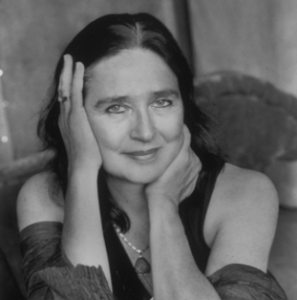
We were pleased to host Sidney Wade at the 6th Annual Palm Beach Poetry Festival.
More biographical and publication information is available at http://www.sidneywade.com
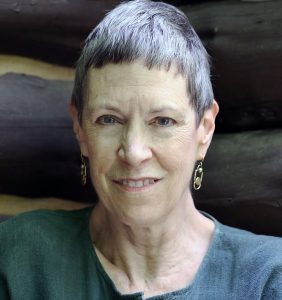
CHASE TWICHELL has published eight books of poetry, most recently Things as It Is (Copper Canyon, 2018). Horses Where the Answers Should Have Been: New & Selected Poems (Copper Canyon, 2010) won both the 2011 Kingsley Tufts Poetry Award from Claremont Graduate University and the Balcones Poetry Prize. She has received fellowships from the National Endowment for the Arts, the New Jersey State Council on the Arts, The John Simon Guggenheim Memorial Foundation, and a Literature Award from the American Academy of Arts and Letters. In 1997 she won the Alice Fay Di Castagnola Award from the Poetry Society of America for The Snow Watcher. Twichell was educated at Trinity College (Hartford, CT (BA, 1973) and the University of Iowa (MFA, 1976), and in 2010 was awarded an Honorary Doctorate from St. Lawrence University. After teaching for many years (Hampshire College, The University of Alabama, and Princeton University), she started Ausable Press, a not-for-profit publisher of poetry, which was acquired by Copper Canyon Press in 2009. She is currently on the faculty at the Warren Wilson Program for Writers.
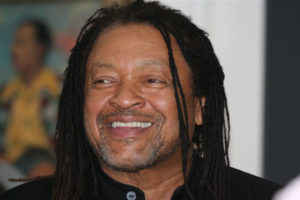
We were pleased to host Quincy Troupe at the 3rd Annual Palm Beach Poetry Festival.
More biographical and publication information is available at https://www.quincytroupe.com
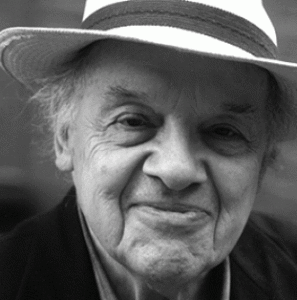
We were pleased to host Gerald Stern at the 5th Annual Palm Beach Poetry Festival.
More biographical and publication information is available at https://poets.org/poet/gerald-stern
 RIVES is an author of children’s books and spoken word performer. He is the co-host of TEDActive as well as a frequent TED speaker. A regular on HBO’s Def Poetry Jam, Rives also starred alongside model Bar Refaeli in the 2008 Bravo special Ironic Ironic America. Rives also creates popup books for children such as The Christmas Pop-Up Present and If I Were a Polar Bear.
RIVES is an author of children’s books and spoken word performer. He is the co-host of TEDActive as well as a frequent TED speaker. A regular on HBO’s Def Poetry Jam, Rives also starred alongside model Bar Refaeli in the 2008 Bravo special Ironic Ironic America. Rives also creates popup books for children such as The Christmas Pop-Up Present and If I Were a Polar Bear.
His latest project is the Museum of Four in the Morning.
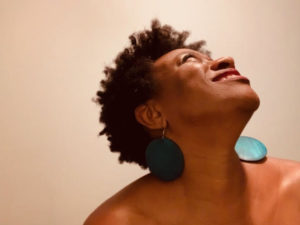
We were pleased to Lynne Procope at the 5th Annual Palm Beach Poetry Festival.
More biographical and publication information is available at https://www.pw.org/directory/writers/lynne_procope
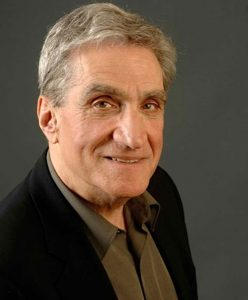 Robert Pinsky is one of America’s foremost poet-critics. Often called the last of the “civic” or public poets, Pinsky’s criticism and verse reflect his concern for a contemporary poetic diction that nonetheless speaks of a wider experience. Elected Poet Laureate of the United States in 1997, his tenure was marked by ambitious efforts to prove the power of poetry—not just as an intellectual pursuit in the ivory tower, but as a meaningful and integral part of American life. “I think poetry is a vital part of our intelligence, our ability to learn, our ability to remember, the relationship between our bodies and minds,” he told the Christian Science Monitor. “Poetry’s highest purpose is to provide a unique sensation of coordination between the intelligence, emotions and the body. It’s one of the most fundamental pleasures a person can experience.”
Robert Pinsky is one of America’s foremost poet-critics. Often called the last of the “civic” or public poets, Pinsky’s criticism and verse reflect his concern for a contemporary poetic diction that nonetheless speaks of a wider experience. Elected Poet Laureate of the United States in 1997, his tenure was marked by ambitious efforts to prove the power of poetry—not just as an intellectual pursuit in the ivory tower, but as a meaningful and integral part of American life. “I think poetry is a vital part of our intelligence, our ability to learn, our ability to remember, the relationship between our bodies and minds,” he told the Christian Science Monitor. “Poetry’s highest purpose is to provide a unique sensation of coordination between the intelligence, emotions and the body. It’s one of the most fundamental pleasures a person can experience.”
Pinsky was named poet laureate in 1997 and served until 2000. Under his direction, The Favorite Poem Project began with inviting ordinary Americans to name their favorite poems, and some entrants were asked to read for a permanent audio archive at the Library of Congress. Pinsky was inundated with letters and e-mails from all over the nation, and those participating represented all ages, all walks of life, and all levels of education.
With Maggie Dietz, Pinsky edited a representative volume of reader responses called Americans’ Favorite Poems: The Favorite Poem Project Anthology. A Publishers Weekly reviewer stated that “the selections are as diverse as the nation that chose them.” Americans’ Favorite Poems proved so popular that two subsequent collections have appeared: Poems to Read: A New Favorite Poem Project Anthology and An Invitation to Poetry: A New Favorite Poem Project Anthology. Booklist contributor Donna Seaman called Poems to Read “a graceful, sometimes jubilant, sometimes lyrical, sometimes brooding, but always welcoming and stirring collection.”Jersey Rain, published in 2000, was Pinsky’s first collection of completely new work since The Want Bone appeared a decade earlier. Reviewing the work in Library Journal, Christian Graham observed that Pinsky’s poems range from the mythic to the confessional. “Occasionally, his differing manners collide strangely,” Graham stated, “but Pinsky delivers, as ever, intelligent, pensive poetry of great beauty.” Pinsky’s latest book, Gulf Music, was published to wide acclaim in 2007. In a review for the New York Times, Joel Brouwer wrote that the collection was “not just an argument for but a demonstration of contemporary poetry’s necessity and vitality in our democracy.” Citing Pinsky’s influence as a critic and “American civic poet,” Brouwer continued: “Pinsky is our finest living specimen of this sadly rare breed, and the poems of “Gulf Music” are among the best examples we have of poetry’s ability to illuminate not only who we are as humans, but who we are — and can be — as a nation.”
Paul Breslin has commented that Pinsky “has emerged as the finest American poet-critic since Randall Jarrell”; Joel Brouwer that “[n]o other living American poet — no other living American, probably — has done so much to put poetry before the public eye.” For his own part, the last American poet laureate of the 20th century told the Progressive: “I think the rhythms in a lot of my writing are an attempt to create that feeling of a beautiful, gorgeous jazz solo that gives you more emotion and some more and coming around with some more, and it’s the same but it’s changed, and the rhythm is very powerful, but it is also lyricism. I think I’ve been trying to create something like that in my writing for a long time.”
At the 7th Annual Festival, in 2011, Robert Pinsky was our Special Guest and performed with the Paul Tardif Trio in the Crest Theatre to our first ever standing room only audience. He is pictured below at the annual festival Gala with poet, Carolyn Wright who was workshop faculty in the same year.
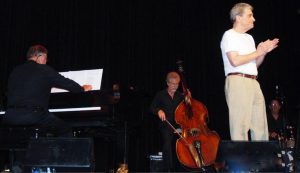
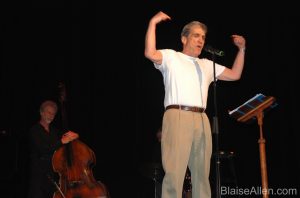
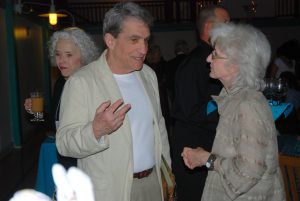
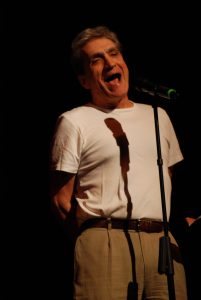
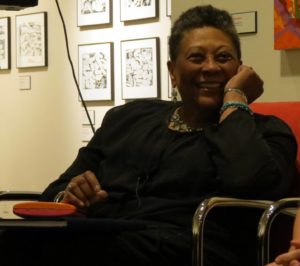 We were pleased to host Marilyn Nelson at the 2nd Annual Palm Beach Poetry Festival.
We were pleased to host Marilyn Nelson at the 2nd Annual Palm Beach Poetry Festival.
An archive of her Festival Reading is available at: https://youtu.be/lroJ6Bl1woI
More biographical and publication information is available at https://marilyn-nelson.com/
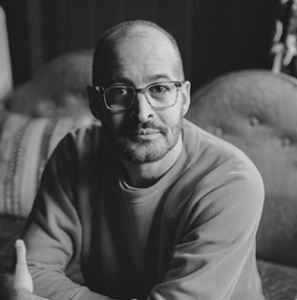
We were pleased to host Anis Mojgani at the 6th Annual Palm Beach Poetry Festival.
More biographical and publication information is available at https://poets.org/poet/anis-mojgani
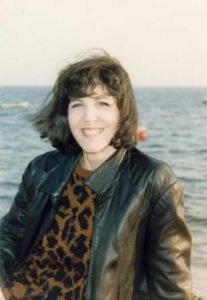
We were pleased to host Susan Mitchell at the 2nd Annual Palm Beach Poetry Festival.
An archive of her Festival Reading is available at: https://youtu.be/hD7_2PGMnvg
More biographical and publication information is available at https://www.poetryfoundation.org/poets/susan-mitchell
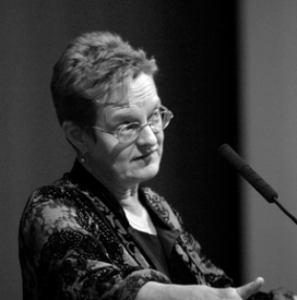
We were pleased to host Heather McHugh at the 3rd and 7th Annual Palm Beach Poetry Festival.
More biographical and publication information is available at https://poets.org/poet/heather-mchugh
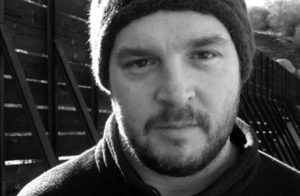
We were pleased to host Jeff McDaniel at the 3rd Annual Palm Beach Poetry Festival.
More biographical and publication information is available at https://poets.org/poet/jeffrey-mcdaniel
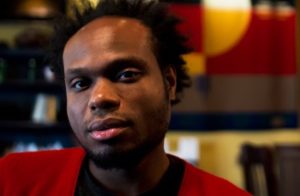
We were pleased to host Jamaal May at the 8th Annual Palm Beach Poetry Festival.
More biographical and publication information is available at https://poets.org/poet/jamaal-may
We would like to collect information during your visit to help us better understand site use. This data is anonymized, and will not be used for marketing purposes. Read More on our Privacy Policy page. You can withdraw permission at any time or update your privacy settings here. Please choose below to continue.